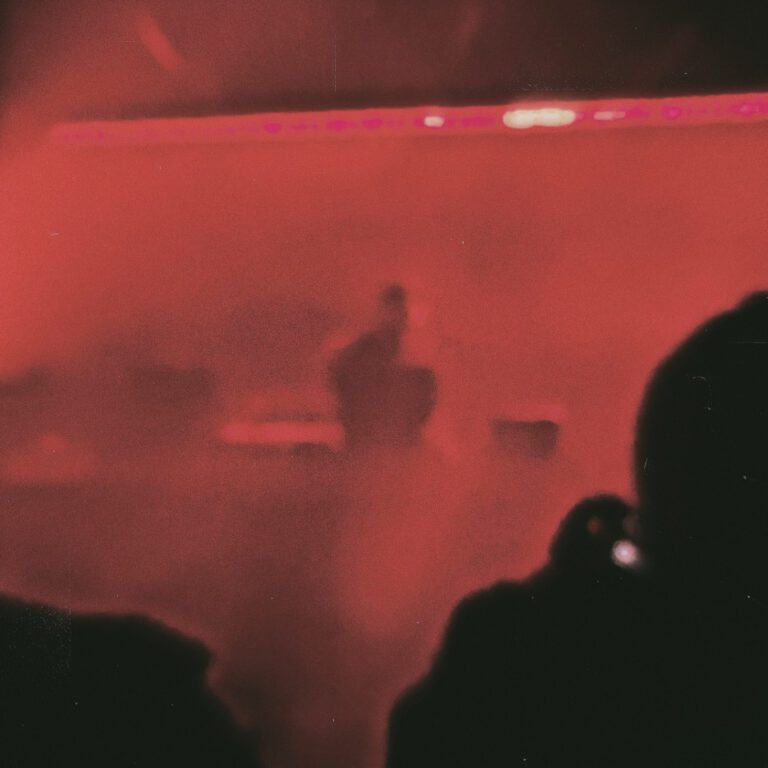In a world of untraceable movements, this liquid form of music is barely contained by the term “experimental.” A post hip hop posts it exists only here and now, where hip hop has become more what is felt than what is heard.
And yet it is still everything that has made it, only noisier and further away, like a signal passing through old wires. African American Sound Recordings seems to look from above at this infinite network and finds the subtle voices, like Morpheus looking through the matrix for the human heart. “Where is that noise coming from?” After 20 minutes you start forgetting, after 30 minutes it has sucked you in, and after 45 minutes you are now a part of it.
Dismantling all expectations, A.A.S.R. sculpted a form beyond music, an anthropology to black culture: from punk, to 70’s soul, to a saxophone screeching like it was cursed by the Pharoah himself. There is an authenticity and an originality in his approach that seems to have been the common thread of this evening.
Slow Pitch Sound’s turntablist approach sent the crowd into a twilight zone. Mixing like he was on a cosmic trip with Lee Scratch Perry in Studio One, his chop and screw approach reminisced of classic scratching acts such as DJ Screw, while at the same time completely renewing it in his choice of samples. Finding loops in accidental sounds, Slow Pitch Sound crafted his rhythms on the spot and had the crowd hanging on his every move. The forgotten art of turntabling showed its untapped potential as an instrument and, combined with digital tools, built a warm and distinct sound made into art by the graceful mastery of his tools.
But the most unexpected surprise of the night was Dumb Chamber’s debut performance, as he showed Montreal the shape of electronic music to come. Always bringing you somewhere new, the dense patchwork of sequences teased rhythm and built up in swells of emotive orchestrations. Somewhere between Luc Ferrari, Dean Blunt, and Oneohtrix Point Never’s “Replica”, his sound was distinguished by a soothing mix of field recordings and sensitive melodies borrowing from classical orchestration.
Dumb Chamber had a big smile on his face as he effortlessly moved between genres; even his twist at classic house held a distinctive style, as noises uttered counter-rhythms in the background. The crowd, which could have been a Ssense staff party, may not have been as warmed up for dancing, but there was the feeling of deep listening and appreciation for the passionately researched sound experiments we were witnessing.
It was one of those experiences where you walk out not quite feeling the same as you walked in. Maybe it was the wall of low frequencies that got into your bones, maybe it was from sitting on the cold concrete, but it felt like a new space opened in imagining music as a performance that I look forward to exploring.
























